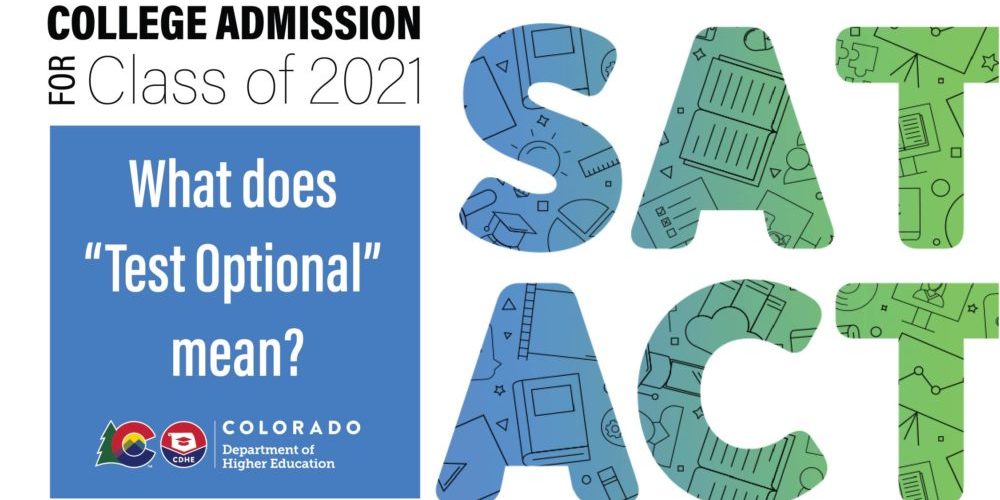
When Colorado Gov. Jared Polis signed a bill that eliminates the requirement for incoming college students in 2021 to submit results from either the SAT or ACT, Heather Daniels did a bit of a happy dance.
Daniels, director of admissions at Colorado State University, has been advocating for the elimination of test scores for several years. And even though the Polis bill is only tied to next year’s freshman class, the news was worth celebrating.
“This is a big win for students,” Daniels said. “Removing the test score requirement eliminates a barrier for many prospective students in the application process. There are many reasons that students’ test scores may be not be an accurate indication of their ability to succeed in college. Between the test anxiety that exists for so many students or the evidence that testing has a disproportionate and negative impact on racially and economically marginalized students, we are excited to take this factor out of the equation.”
Years of testing
The SAT and ACT have long been required to gain entry to any of Colorado’s four-year colleges and universities. The test, along with high school transcripts and letters of recommendation, are reviewed by the CSU Office of Admissions when trying to determine if students should be admitted.
But when the COVID-19 pandemic took hold in the state in March, many school districts canceled scheduled opportunities to take the exams. The Colorado legislature, recognizing the problem the cancellations created for students and colleges, passed a bill waiving the test-score requirement for one year. Polis signed the bill into law Wednesday, July 8, during a ceremony at Red Rocks Community College.
Test scores hurt some students
Leslie Taylor, vice president for enrollment and access at CSU, said test scores can hurt students who are otherwise worthy of admission, and that’s not reflective of the University’s land-grant mission to provide access to all qualified students.
“It’s exciting to see our state supporting students and providing more equitable access to higher education through this piece of legislation,” Taylor said. “In the past few years, many institutions have gone test-optional and we, by state statute, have not had that option in Colorado. When one considers what is most reflected in the test – the socio-economic status of the student’s family – using it as a primary consideration in admissions is really not consistent with our land-grant mission.”
Tests can still be submitted
Daniels said students will still have the option of submitting a test score if they believe it will boost their case for admission.
“A test score can only help, not hurt,” she said. “Test scores can be tied to scholarships and help a student gain access to controlled majors, but the bottom line is that they are not always accurate indicators of a student’s ability to succeed. What it comes down to is that there are biases within the tests, making them a less-than-perfect way to evaluate students.”
Daniels added that there is hope among directors of admissions across the state that the one-year waiver will become permanent. Several of the state’s private universities – Regis University, Colorado College and the University of Denver – already are test-optional.